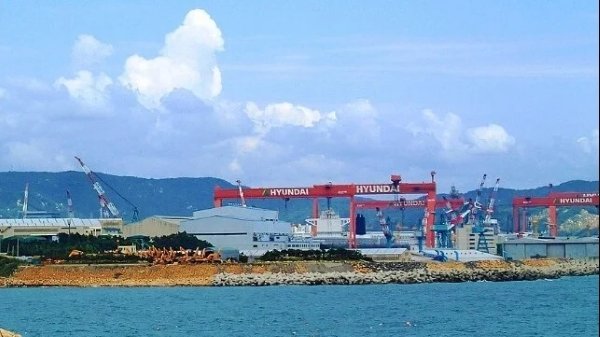The European Commission confirmed its opposition to the proposed acquisition of Daewoo Shipbuilding & Marine Engineering by Hyundai Heavy Industries announcing that it has “prohibited” the South Korean shipbuilders from merging under the EU Merger Regulation. The decision, which had been rumored for months, is based on the merger’s creation of a dominant position and reduced competition in the worldwide market for the construction of large liquified gas carriers.
“Large LNG vessels are an essential element in the supply chain of liquefied natural gas and enable the transport of this source of energy around the globe,” said Margrethe Vestager, Executive Vice-President of the EC in charge of competition policy. “The merger between HHIH and DSME would have led to a dominant position in the global market for the construction of large LNG vessels, for which there is significant demand from European carriers. Given that no remedies were submitted, the merger would have led to fewer suppliers and higher prices for large vessels transporting LNG.”
Today’s decision, the EC said, follows an in-depth investigation of the proposed transaction. After they received notification of the merger in November 2019, they noted that they had initially expressed concern about the impact on global competition for the construction of oil tankers, LPG and LNG carriers, and containerships prompting the launching of the in-depth investigation. The decision, however, only relates to the market for large LNG carriers.
Hyundai Heavy Industries Holdings issued a statement calling the decision “disappointing,” and saying it would consider options including a possible appeal. The South Korean government also said that it “regretted the EU’s disapproval of the merger,” but noted that the global recovery in the shipbuilding market meant that it might have less impact than when the merger was first agreed to more than two years ago. The government said it would continue to “search for a civilian operator” for Daewoo while the Korea Development Bank, which saved DSME from bankruptcy in 2017 and was using the merger to divest the government’s holding in the company, was expected to make a further statement.
Vestager speaking to explain the EC’s decision emphasized that they had received extensive feedback from a large number of customers, competitors, and third parties, as well as speaking with other merger regulators in Japan and Korea. They noted that the review procedure was suspended three times due to the failure of HHI to provide the commission with information requested in a timely manner, but ultimately the companies “did not formally offer remedies” to meet the EC’s concerns.
“LNG is one of Europe’s sources of energy,” said Vestager noting the importance of diversification of sources with today’s energy situation. “About a quarter of all of the EU’s energy consumption is accounted for by natural gas, most of which is imported.”
The market for the construction of large LNG carriers the EC said represented around €40 billion in the last five years noting that while it is a global market that European customers accounted for almost half of all orders for large LNG carriers. years HHI and DSME over the past 10 have been growing their share of the LNG carrier market and combined the EC judged they would have a market share of at least 60 percent leaving only one other shipyard competing for LNG construction contracts.
Citing that there would be very few alternatives for customers, limited capacity in the market, and very high barriers to entry, the EC determined that there would be very little buyer power if the merger proceeded. They believed it would lead to higher prices for EU shipowners and ultimately for energy consumers.
“Our goal with EU merger control is to prevent the creation of monopolies or dominate players harming competition and business customers or consumers,” said Vestager. While she said they had decided to “prohibit” the merger, the EC can not block the deal if the companies decided to proceed. However, it would create barriers making it impossible for EU shipowners to do business with the combined yard. The merger has also not received approval from Japanese and Korean regulators.
The European Commission said that the decision to block the HHI-DSME merger was only the tenth time over the past 10 years that the EC has formally rejected a proposed transaction. They said that over 3,000 mergers have been approved but no figures were offered on how many proposals were withdrawn due to opposition. In January 2021, the proposed merger of Fincantieri and Chantiers de l'Atlantique was withdrawn when Italian and French officials said they were unable to overcome concerns voiced about the combination of Europe’s large shipbuilders.
Source www.maritime-executive.com
 EU regulators moved to prohibit the proposed merger of Hyundai and Daewoo's shipbuilding operations (file photo)
EU regulators moved to prohibit the proposed merger of Hyundai and Daewoo's shipbuilding operations (file photo)




.jpg)




